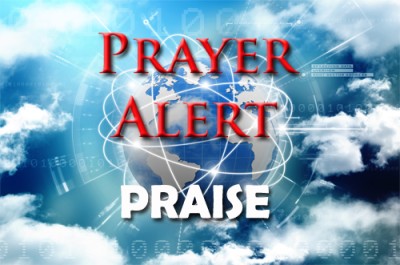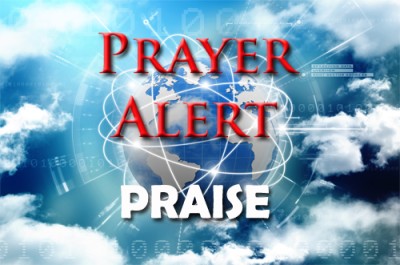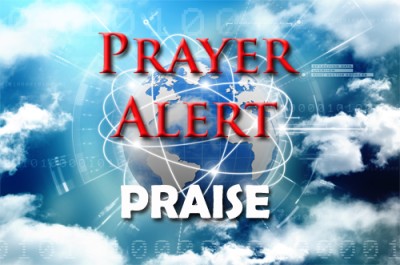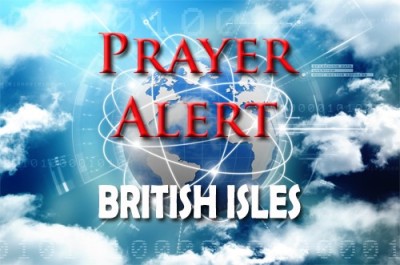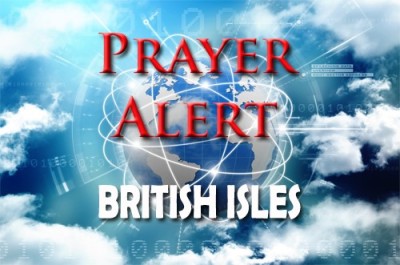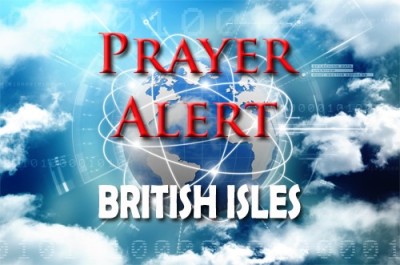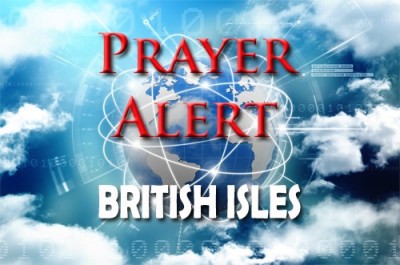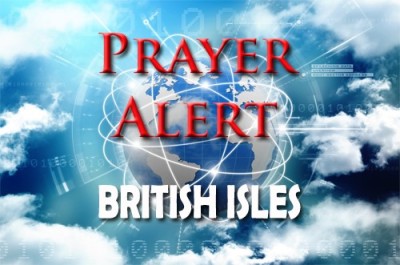Should have died, but Christ changed everything
12 Jan 2023Robby was a homeless drug user after becoming addicted to opiates prescribed for a painful back injury. He said, ‘Opiates were the biggest lie I have ever been associated with. Only by the grace of God am I still breathing today. I should have died more than once. Addiction landed me homeless at the Salvation Army.’ Mia, his wife, was an alcoholic before they met. She had grown up in the church but lost her way and sought help to stop her dependence. Both of their lives dramatically changed when they found Jesus. Robby’s conversion set him on an incredible path away from homelessness and into God’s plan for his life. Now he and a colleague are sharing the Gospel at their Revelations Café that nourishes people physically and helps them grow spiritually so that they live a full and robust spiritual and physical life.
100 hostages rescued from ADF
12 Jan 2023Recently, a joint military operation between Uganda and the Democratic Republic of Congo successfully rescued over one hundred civilians who were being held hostage by the Islamic extremist group Allied Democratic Forces (ADF). The military task force launched airstrikes on the ADF rebel camps for over two months before the rescue operation. One of the rescued women said, ‘The soldiers arrived when we were praying. They fired several bullets, which allowed us to flee to the middle of the bush.’ The ADF started as a force opposing the alleged mistreatment of Muslims by Uganda. It later expanded to the DRC, where it has grown and spread. It is the most violent of 120 armed groups in eastern DRC and has committed crimes against Congolese civilians, including many Christians.
Hope for the future
12 Jan 2023The Roman god Janus, after which January is named, has two faces, one looking forward, the other backward. In mythology he may represent a door or gateway. Praise God our call is to look forward, to press on (Philippians 3:12b -14), following our Lord with a sure and certain hope of his promises (Hebrews 6:19-20). He promises to open new doors, ones that cannot be shut, and closing those we do not need to worry about (Revelation 3:8-11). Jesus himself is also our gate, our doorway into the very presence of God and to our future hope (John 10:1-10). He is our good shepherd leading us in the right paths whilst guarding what is behind, following us with goodness and mercy (Psalm 23). In 2023, pray that our focus will not be on what the future holds, which will do us no good, but rather on the One who holds the future.
UK could send tanks to Ukraine
12 Jan 2023Britain is considering becoming the first country to send Western tanks to Ukraine in what would be a major stepping up of international support. Last week foreign secretary James Cleverly said Britain was open to sending Ukraine Challenger II battle tanks and ‘will continue to evolve our support as Kyiv readies the next phase of their self-defence’. The remarks were a shift in the Government’s position, with No 10 previously being in step with other Nato allies in being reluctant to supply heavy armoured vehicles. Any pledge by the UK could be made at the next meeting of the US-led Ramstein Contact Group of international supporters of Ukraine, due next week. Defence sources said the UK could supply Volodymyr Zelensky with the British Army’s main battle tank to encourage other Western allies to follow suit and stop the war.
Hope for the Countryside
12 Jan 2023There has been a significant downturn in avian influenza cases since the beginning of November. Case rates peaked at over six a day in mid-October, but are now running at less than one a day, the majority of those being backyard flocks: the housing order for kept birds in England and Wales is seen as a contributing factor. Epidemiologists still predict another peak and are genuinely perplexed as to why we have not seen one yet, as there is a sustained increase in winter cases in wild bird carcasses. Housing orders and good biosecurity by commercial flock owners no doubt continue to play their part. Thank God for His mercy and continue to pray for His protection as the upturn threat is still anticipated for our wild bird colonies.
Two British men missing in Ukraine
12 Jan 2023Humanitarian workers Andrew Bagshaw and Christopher Parry were last seen on 6 January heading to Soledar, where fighting is intense. The Foreign Office is supporting their families. Christopher travelled to Ukraine to help people to evacuate Bakhmut, in the eastern Donbas region. He recently described having a ‘drive to help, as the people here are so lovely’. He spoke of continuous bombardment as he worked near the front line. Andrew wrote in his online crowdfunding page for vehicle repairs, fuel and equipment to help evacuate civilians. He also has been helping children and families to flee the front line, delivering food and medicines and assisting elderly people move away from the battlefront. On 13 January the Russian Wagner group said it had found the body of one of the two missing men in eastern Ukraine. The Foreign Office has not confirmed the claim and is in touch with Ukrainian authorities. See
Hospital patient’s experience
12 Jan 2023One patient’s time in A & E: ‘I witnessed the devastation of thirteen years of government underfunding of emergency care. After I phoned 111 they told me to travel immediately to my local hospital’s emergency department. They booked me in for a 9pm arrival time. I imagined I would be seen then but there were sixteen ambulances waiting to offload their patients. The waiting room was a vision of hell. Every chair was occupied. Sick people looking dangerously unwell leaned against walls; the wait went on and on for all of us. I was seen by a doctor at 3am. During those six hours, I witnessed a man with what appeared to be cardiac symptoms collapsed onto the floor, possibly from a heart attack. A toddler was screaming “It hurts, it hurts!” for almost three hours without a break. It was devastating to hear. When I asked a nurse if this was an especially busy night, she said, “This is a quiet one”.’
Potential new offer to health workers
12 Jan 2023Health secretary Steve Barclay will hold another round of talks with union leaders ahead of planned strikes by nurses. Whitehall said ministers were working on options for resolving the strikes, which could include a one-off payment to reflect cost of living pressures. They recognised that union leaders ‘have to get something for this year’ before they will consider calling off the current wave of industrial action. What level of payment might be offered, and how it could be funded, is not yet clear. There are also concerns that any payment to resolve the health dispute would set a precedent for other sectors facing industrial strife, including education and transport, potentially landing the taxpayer with a bill running into billions of pounds. The moves came as 25,000 ambulance workers staged a second day of walkouts and unions warned they could boycott talks on the next pay round in April.
